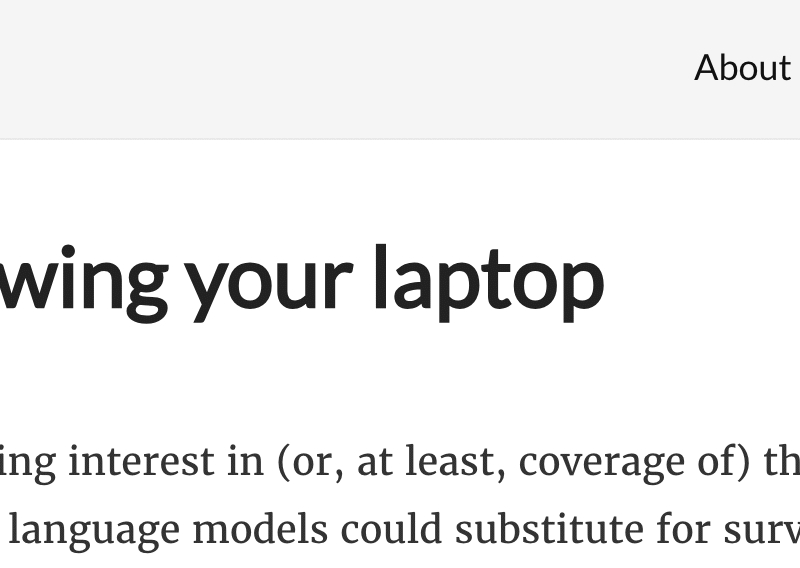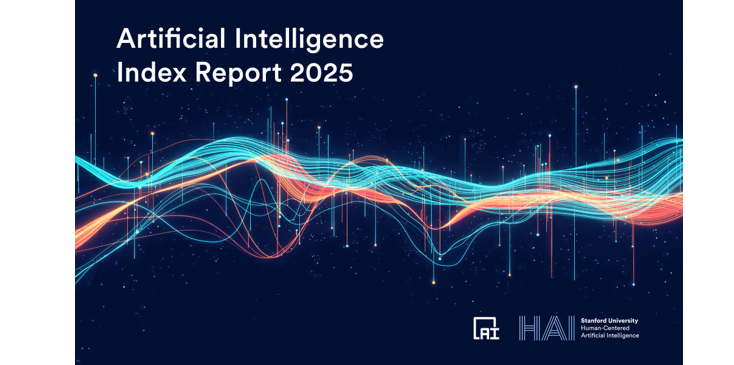article, I discuss how you can get the most out of attending technical events as a data scientist, ML engineer, or other similar roles. Attending events can be challenging, as there are numerous ways to spend your time. I will thus discuss how to prioritize your time between talking to experts, attending presentations and panels, and visiting company booths. There are also other ways to improve your experience, such as proper preparation ahead of the event and reflecting on your learnings, both of which I will discuss in this article.
The inspiration for this article stems from my attendance at NVIDIA GTC Paris 2025 as a data scientist from Findable from June 10 to 12, 2025. I will thus discuss my experience at the event, what I learned, and how you can approach similar events to get the most out of them.
You can also read my article on OpenAI Whisper for transcriptions.
Disclaimer: I am not sponsored by NVIDIA in any way, and they did not influence the contents of this article.
I will split this article into four main segments:
- Motivation: My motivation for attending the event and writing this article
- Preparation before the event
- During the event
- Reflections after the event
This is to highlight the thought process I went through before, during, and after attending the event.
Motivation
My motivation for this article is that I was attending NVIDIA GTC Paris 2025. This marked my first time at a large conference like this, and thus, I spent some time figuring out how to best spend my time at the event.
I attended the event as an employee of Findable, and went there to improve my technical knowledge, discuss AI with smart people, and hopefully learn a lot. I believe going to such events can be an immense learning experience, but to get the most out of the events, you have to prepare and strictly prioritize how you spend your time.
My goal for the article is to share my experience at the event, and inform you how you can get the most out of similar technical events.

NVIDIA DGX GB200 compute system. Image by the author,
Planning ahead of the event
Before the event, NVIDIA put out a full session overview on their page. I went through all the sessions on their page, and selected up to the top three sessions I wanted to attend per timeslot. Sometimes, less than three were relevant to me, in which I just selected the relevant sessions. I also put the sessions in a prioritized order.
I then put all of the relevant sessions into my calendar, as you can see in the image below. As you can see, I packed my calendar to be as full as possible. I believe this is a good starting point, and if you find out during an event that you want to do something else, you can of course decide to prioritize that. For example, on Wednesday, June 11., I found out there would be a discussion with
This naturally outweighed the other plans I had that evening, and I decided to attend that discussion instead, which turned out to be an inspiring talk.

And that was most of the planning I did for the event. Other than this, I mostly took things on the fly during the event.
During the event
There were three days to the event
- Tuesday, June 10: I attended an LLM Workshop
- Wednesday, June 11: Jensen’s Keynote and some sessions in the afternoon
- Thursday, June 12: Sessions the entire day
Tuesday June 10
On my first day at the event, I attended the workshop on adding new knowledge to LLMs. This was an interesting workshop going through topics such as:
- Data cleaning/curation
- Evaluation (LLM as a judge, etc)
- Knowledge injection (fine-tuning)
- LLM compression (distillation)

This was an insightful workshop, and I would recommend attending similar workshops if they are relevant to you and your work. I also met some interesting people at the workshop, with whom I got to have insightful technical discussions.
However, I believe the most effective thing you can do at such a workshop is to discuss with the instructors. In reflections after the workshop, I realized I spent too little time discussing with the instructors, because in a lot of cases, they would be really smart people working at NVIDIA, who could give you insights into different AI topics. If I were to attend a workshop like this again, I would spend more time in advance preparing questions to ask during the workshop.

Wednesday/Thursday, June 11/12
There are a number of things you can spend your time on during these days. Most notably:
- Attending presentations/panel discussions
- Going to the company booths
- Attending the connect with experts sessions
Connect with expert sessions are events where you sit around a small table, among a few other attendees, and you get to ask questions to an NVIDIA employee. The events typically had a set topic; however, you could, in theory, ask any question.
Connect with expert sessions were by far the most valuable sessions I attended during my time at GTC Paris.
The main reasons for this are:
- The NVIDIA employees present at the event were super intelligent and could, in most cases, give me a really good response to my questions
- I was able to ask questions about business-specific problems (that I, for example, face at Findable) and receive answers to those. This is naturally much better than only asking questions about general AI topics.
To elaborate on the last bullet point: In connection with expert sessions, you are meant to ask a question. This could be as general as:
How do I use LLMs for classification?
However, it is often difficult for people to answer such generic questions, as it is difficult to know where to begin answering the question. To solve this problem, you can provide them with an example (or, in many cases, the NVIDIA employees will ask for a specific example). You can then provide them an example of a specific problem you are working on at your business, and receive a very specific response, which in many cases will be far more valuable.
As an example, I would add to my question
In Norway we have a classification standard for building documents, where they have to be sorted into around 300 different categories. The categories are for example “Electrical cables”, “Ventilation system”, “Furniture” and so on.
Providing an example like this both makes it easier for the NVIDIA employee to answer your question and makes the response to the question more relevant for you. It’s a win-win!

I would also like to add that you can, in many cases, connect with NVIDIA employees by asking questions after their presentation/panel discussion. You can do this by:
- Asking a question in front of everyone on the microphone
- Finding the speaker(s) after the sessions and asking questions
- Connecting with them on LinkedIn and asking your question there.
Also, I did attend some presentations on June 10. and 11. that were insightful. However, I also experienced that a lot of sessions only covered topics at a very high level, or only covered NVIDIA-specific tools, and did not truly provide useful insights for me in my work. This is why I decided to spend more time on the connect with experts sessions.
Reflecting after the event
After the event, I reflected on everything I learned throughout the three-day attendance. I had a lot of impressions after those days, from meeting so many new people, picking up a lot of new knowledge, and in general, by being in an environment with a lot of smart people, working on similar stuff to what I am working on.
On my way home from the event, I therefore
- Went through all my notes. I made sure to take notes from every session I attended.
- Went through the material I received during the event. Mostly Jupyter Notebooks and presentations
- Connected with people I met on LinkedIn
Later on, I also watched some replays from the event, which you can watch on demand.
I also believe that when attending such events, the best ideas may sometimes come from your own mind. So it’s not necessarily what someone says to you, but
For example, I talked with an NVIDIA expert about fine-tuning LLMs, and he mentioned how teacher-student models are very important in today’s landscape. Hearing this made me think about when I was working on fine-tuning Qwen 2.5 VL, and that I might have missed a part of the LoRA fine-tuning that made model performance a lot worse than it could have been. I try to sum this concept up in a single quote below:
When attending events, the most valuable insights often arise from your own thoughts inspired by conversations—not just from what someone directly says.
After some reflections, I will now also provide some positive and negative sides with attending the event
Upsides of the event
- You get to meet a lot of smart people working on similar problems to you
- You get a condensed set of useful information (a lot of what you learn at the event can also be found online); however, there is also a lot of noise on the web. At the event, most of the information is of high quality
Downsides of the event
- It can sometimes feel like searching for gold in Klondike when speaking to people. You might have to speak to a lot of people before you find someone with the right expertise and interest to help you on your exact problem
- It takes a lot of time. I spent three full days at the event, which naturally could be used in a lot of different ways
Conclusion
In this article, I discussed how to effectively attend technical events, drawing on my experience attending NVIDIA GTC Paris 2025. I explained how you should plan the event ahead of time and determine which sessions you want to attend, and I highlighted how I personally learned most from speaking to different experts (particularly NVIDIA employees), rather than attending presentations and panel discussions. Reflecting on the event afterwards is also important, going through all your notes and the material you got from the event. Attending technical events, such as NVIDIA GTC, can be immensely helpful for gathering new ideas, connecting with interesting people, and hopefully, enhancing your engineering skills.
👉 Follow me on socials:
🔗 LinkedIn
🐦 X / Twitter
✍️ Medium
🧵 Threads

